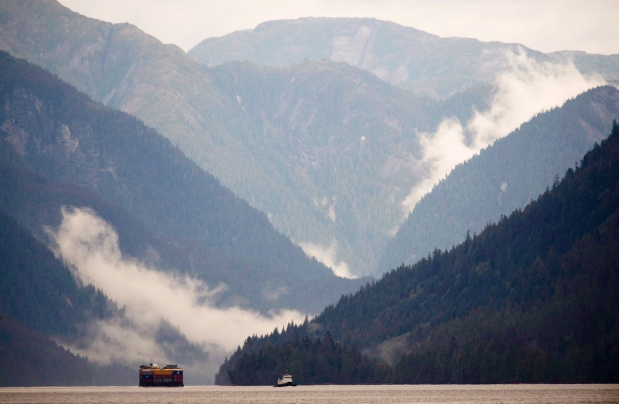By ROB GILLIES Associated Press
Canada’s government on Tuesday approved a proposed pipeline to the Pacific Coast that would allow oil to be shipped to Asia, a major step in the country’s efforts to diversify its oil industry.
The approval Tuesday was expected. Conservative Prime Minister Stephen Harper has been a staunch supporter of Enbridge’s proposed Northern Gateway pipeline after the U.S. delayed a decision on TransCanada’s Keystone XL pipeline that would take oil from Alberta to the U.S. Gulf Coast.
Enbridge’s pipeline would transport 525,000 barrels of oil a day from Alberta’s oil sands to the Pacific to deliver oil to Asia, mainly energy-hungry China.
There is fierce environmental and aboriginal opposition to the project and legal challenges are expected. About 220 large oil tankers a year would visit the Pacific coast town of Kitamat and opponents fear pipeline leaks and a potential disaster on the pristine Pacific coast.
Natural Resources Minister Greg Rickford said in a statement that Enbridge must meet the 209 conditions Canada’s regulator imposed on the pipeline. The company has previously said it would.
“The proponent clearly has more work to do in order to fulfill the public commitment it has made to engage with Aboriginal groups and local communities along the route,” he said in a statement.
The Keystone XL pipeline and the Northern Gateway project are critical to Canada, which needs infrastructure in place to export its growing oil sands production. The northern Alberta region has the world’s third largest oil reserves, with 170 billion barrels of proven reserves.
Harper has said Canada’s national interest makes the pipelines essential. He was “profoundly disappointed” that U.S. President Barack Obama delayed a decision on the Texas Keystone XL option, and spoke of the need to diversify Canada’s oil industry. Ninety-seven percent of Canadian oil exports now go to the U.S.



